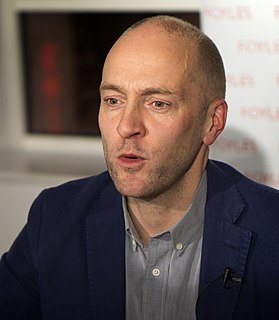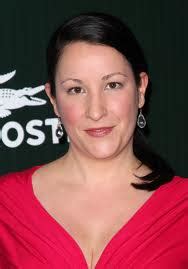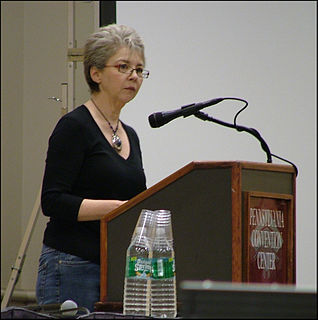A Quote by Jaron Lanier
Individual web pages as they first appeared in the early 1990s had the flavour of person-hood. MySpace preserved some of that flavour, though a process of regularized formatting had begun. Facebook went further, organizing people into multiple-choice identities while Wikipedia seeks to erase point of view entirely. If a church or government were doing these things, it would feel authoritarian, but when technologists are the culprits, we seem hip, fresh, and inventive. People accept ideas presented in technological form that would be abhorrent in any other forms
Quote Topics
Abhorrent
Accept
Any
Appeared
Authoritarian
Begun
Choice
Church
Doing
Early
Early 1990s
Entirely
Erase
Facebook
Feel
First
Flavour
Form
Forms
Fresh
Further
Government
Had
Hip
Hood
Ideas
Identities
Individual
Inventive
Multiple
Myspace
Organizing
Other
Pages
People
Person
Point
Point Of View
Presented
Preserved
Process
Seeks
Seem
Some
Technological
Things
Though
View
Web
Web Page
Were
While
Wikipedia
Would
Would Be
Related Quotes
We also had a team of costumers that would do samples for us, of fabrics, textures, people doing silhouettes of things up on dress forms, just to kind of inform the design process. Through all of that we got to the point that we had to figure out how to light them up. So that was a huge undertaking.
Early on, I settled on the first-person strategy as a way to deal with exposition and world-description issues. As long as the book is, it could have been far longer had I gone with an omniscient third-person narrator, or multiple point-of-view characters, since either of those would have enabled me to impart much more detailed information about the history and geography of the world.
She wondered how people would remember her. She had not made enough to spread her wealth around like Carnegie, to erase any sins that had attached to her name, she had failed, she had not reached the golden bough. The liberals would cheer her death. They would light marijuana cigarettes and drive to their sushi restaurants and eat fresh food that had traveled eight thousand miles. They would spend all of supper complaining about people like her, and when they got home their houses would be cold and they'd press a button on a wall to get warm. The whole time complaining about big oil.
Faced with the Divine, people took refuge in the banal, as though answering a cosmic multiple-choice question: If you saw a burning bush, would you (a) call 911, (b) get the hot dogs, or (c) recognize God? A vanishingly small number of people would recognize God, Anne had decided years before, and most of them had simply missed a dose of Thorazine.
Looking at the data and at my drug use and evaluating it carefully just let me see that I wasn't special, but my drug use challenged what I thought about cocaine. Because I would accept when I would say, "What happened to that person?" and someone would say, "They started using cocaine...they went downhill..." I would just accept that, even though I had a different experience and all these other people had a different experience. But I would throw that out because I thought my experience was an aberration.
The reality is that the founding fathers were land speculators. The fact was that you couldn't vote in this country if you did not own land, and that was basically you had to be a white man who owned land. Now how did they get that land? They basically had to steal it from someone, and that would be probably the Indians. And so most of the initial founding fathers were, while they may have had some really nice ideas about democracy, they had a lot of issues with people of color. They had a lot of issues with people who held things that they coveted.
Even her name seemed empty, as though it had detached itself from her and was floating untethered in his mind. How am I supposed to live without you? It was not a matter of the body; his body would carry on as usual. The problem was located in the word how: he would live, but without Elspeth the flavour, the manner, the method of living were lost to him. He would have to relearn solitude.
I became quite a diva, and intolerant, and people knew when I was not pleased. Some people were afraid of me, and other people just kind of blew me off. But I wasn't making any friends. I only had one person who remained my friend, and he was my boyfriend for a while. Even though I told him I was gay, he was like, 'That's alright.'
In the Depression, besides everybody being poor, our entertainment was much more primitive and innocent. The comic strip, which I so venerated, was still a very new form. Movies had just become talkies. Radio had just gone coast to coast for the first time. Network radio had just begun when I was a kid. So all of these forms were more or less in their infancy, and feeling their oats. Comics were fresh and funny and nervy, and in a sense, defiant of the prevailing culture.
The notion of the Internet as a force of political and social revolution is not a new one. As far back as the early 1990s, in the early days of the World Wide Web, there were technologists and writers arguing forcefully that the Internet was destined to become the most important tool for cultural change in human history.
It does seem to me, though, that there is a difference between the Mormon Church saying, "We don't accept gay people within the Church; we don't accept gay marriage within the Church; we don't accept people who act on their homosexual desires within the Church;" and trying to interfere with what happens outside of the Church. That seemed to me to be an abomination.
In these sentiments, sir, I agree to this Constitution, with all its faults, if they are such; because I think a General Government necessary for us, and there is no form of government, but what may be a blessing to the people if well administered; and believe further, that this is likely to be well administered for a course of years, and can only end in despotism, as other forms have done before it, when the people shall become so corrupted as to need despotic government, being incapable of any other.








































